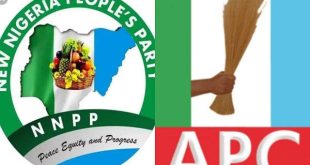
Following the misleading information flying in the media space, the Federal Inland Revenue Service (FIRS) has clarified that Nigerians will not be required to obtain a separate Tax Identification Number (TIN) in order to open or operate bank accounts.
The agency explained that the TIN system has been designed to work seamlessly with existing national identifiers such as the National Identification Number (NIN) for individuals and Corporate Affairs Commission (CAC) registration numbers for companies and other legal entities.
The clarification followed reports suggesting that, beginning January 2026, Nigerians would have to present a TIN before they could open or maintain bank accounts. The reports sparked concerns that citizens might face additional bureaucracy and barriers to financial inclusion.
Arabinrin Aderonke Atoyebi, Technical Assistant on Broadcast Media to the Executive Chairman of FIRS, Zacch Adedeji, dismissed the reports as misleading.
She explained that the TIN is a 13-digit number designed to uniquely identify taxable individuals and entities across the country. It incorporates details such as the year of issuance, the registry source (for example, NIN for individuals, RC number for companies), the state of registration, a cryptographic component, and a check digit.
According to her, Nigerians do not need to apply separately for a TIN. Instead, when an individual provides their NIN during processes such as bank account opening, the system automatically generates and links the TIN to their record. For companies and other registered entities, the same applies through their CAC registration numbers or other recognised registries for cooperatives, partnerships, professional bodies, and associations.
FIRS stressed that the move is aimed at strengthening transparency in the tax system, reducing fraud, improving regulatory compliance, and promoting financial inclusion.
The agency assured Nigerians that existing identifiers like NIN and CAC registration numbers are sufficient for opening and operating bank accounts, without the need for additional documentation.
 NewsDesk Your trusted news source
NewsDesk Your trusted news source





